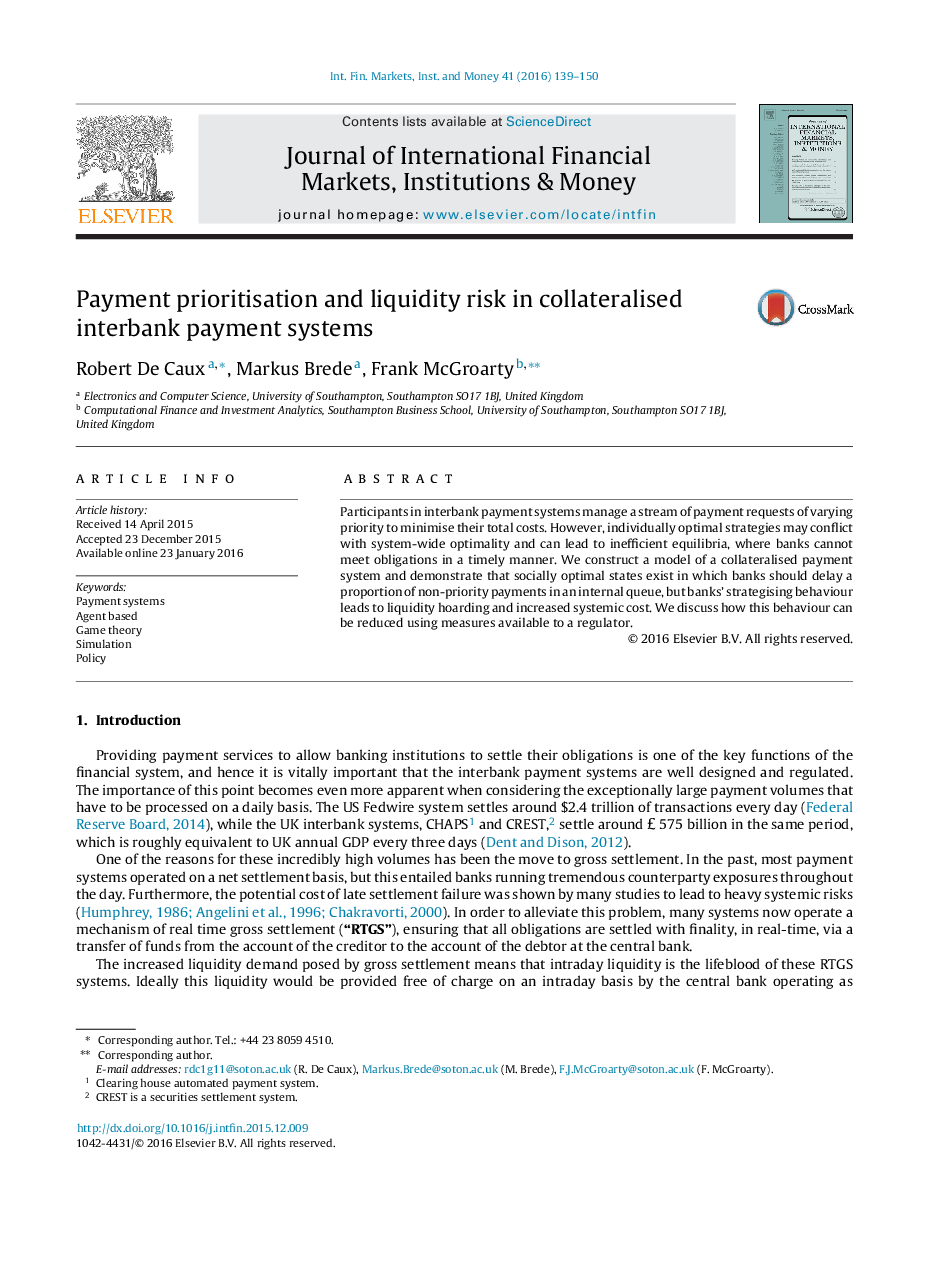| Article ID | Journal | Published Year | Pages | File Type |
|---|---|---|---|---|
| 963894 | Journal of International Financial Markets, Institutions and Money | 2016 | 12 Pages |
•We simulate a collateralised interbank payment system using a multi-agent model.•Banks manage a stream of payment requests to minimise liquidity and delay costs.•It can be socially optimal for banks to queue a proportion of non-priority payments.•Strategising leads to banks hoarding liquidity and queuing too many payments.•Regulatory measures can move the system towards a socially optimal state.
Participants in interbank payment systems manage a stream of payment requests of varying priority to minimise their total costs. However, individually optimal strategies may conflict with system-wide optimality and can lead to inefficient equilibria, where banks cannot meet obligations in a timely manner. We construct a model of a collateralised payment system and demonstrate that socially optimal states exist in which banks should delay a proportion of non-priority payments in an internal queue, but banks’ strategising behaviour leads to liquidity hoarding and increased systemic cost. We discuss how this behaviour can be reduced using measures available to a regulator.
